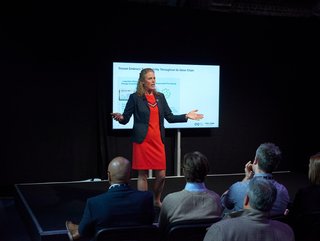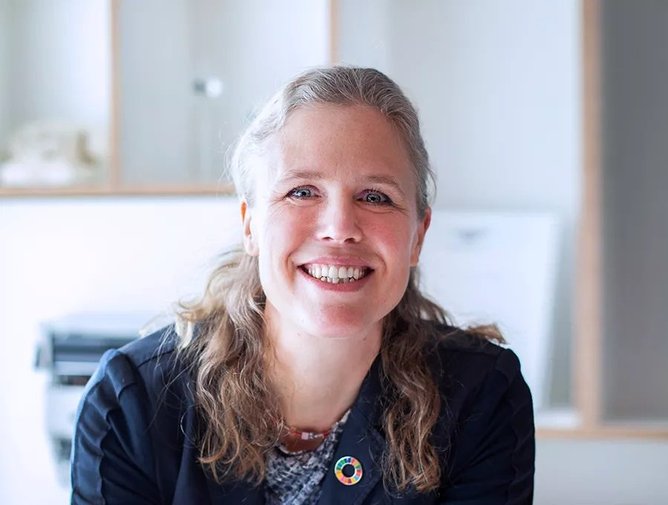Trivium Packaging: Will Packaging Ever Be Truly Circular?

Packaging is seen as a key area for reducing our environmental impact, and many believe innovation will reduce the overall waste potential of packaging — but will packaging ever be truly circular? .
Global sustainable packaging leader Trivium Packaging’s Chief Sustainability Officer Jenny Wassenaar says it depends on the materials. Some materials will never be circular as they cannot be recycled infinitely, meaning eventually, they will end up in landfills or incinerated. Looking specifically at aluminium — Trivium’s expertise — around 75% of the metal ever produced continues to be in use today, indicating that it is very likely that packaging made of this material will be truly circular.
To close that 75% gap, the whole supply chain must be engaged to collect, reuse, and recycle aluminium.
Jenny Wassenaar sat down with Sustainability Magazine to explore the possibilities — and the challenges — of circularity in packaging.

Please can you introduce Trivium, and its role in the packaging industry?
Trivium has worked with some of the world’s leading brands, helping them transition to infinitely recyclable metal packaging. It has more than 60 locations across the globe, with nearly 7,500 employees, and an annual revenue of approximately 3.3 billion dollars. Trivium was recently honoured with it’s third consecutive Platinum rating by Ecovadis, and an A list, climate, rating by the CDP. Additionally, Trivium is a consecutive CDP Supplier Engagement recipient for its sustainability work with its supply chain. We have partnerships with organisations around the globe that aim to further the impact of sustainable practices and recycling. For example, in Argentina we partnered with Creando Conciencia, an urban recycler organisation, expanding the recycling of aerosols in the region. In the US we’ve partnered with the Canned Good Coalition to help educate consumers on the benefits and recyclability of cans, and in Europe our partnership with Alupro, mentioned in question one. At Trivium, sustainability is at the core of everything we do. We hope our actions are an inspiration to others in our industry and that they can learn from us, and we from them to do better for our planet.
Do you think that packaging will be the first net-zero industry and waste-negative industry? How?
For packaging in general, it will be very challenging to become the first net-zero and waste-negative industry. Certain packaging materials see extremely low global recycling rates, and even when the materials are collected for recycling, many times, they are used for lower-quality outlets, which we call downcycling. This will hinder the progress for the “Packaging family”. The metal used for the majority of packaging solutions is Steel and Aluminium. These material groups have roadmaps in place to become a net-zero industry. These materials are already highly recycled on a global scale as the material quality stays high in the recycling process, and therefore, the value of the second, third, fourth, etc, round of recycling stays attractive to collect and continue the recycling process.
How will a sustainable packaging industry impact the Social and Governance elements of ESG?
Social and Governance are just like Environmental key building blocks for a sustainable future. A company does not exist without its people. Packaging production processes are generally high-speed and highly technical. Therefore, the packaging industry can serve as an example for other companies working with high-speed operations. Trivium Packaging has already been recognized 3x by EcoVadis as a leader in the industry with a Platinum label, which is only provided to the top 1% of all companies they evaluate. EcoVadis assesses companies on four elopements, besides Environmental practices also, Labor & Human Rights, Ethics, and Sustainable Procurement. Without a strong Governance to validate these processes, this would not be possible.
How can companies close the loop on packaging?
We like to talk about closing the material loop. As it is not always the most sustainable solution to collect the packages where they are used and then transport them back to make new cans. It is better to use the metal in the place where it ends up. For example, when we sell cans that perverse food at ambient temperature for up to 5 years, these cans can end up all over the world. To then, after use, send the cans back, we only add transport CO2 and costs, while the metal can be used locally to make new products like new steel for construction, bikes, cars, or other packaging solutions, or aluminium can be remelted into pans and other utilities.
For Trivium, PCRs are an important component of our push towards full circularity. The challenge lies, however, in certain types of products, such as aerosol cans, which require high-purity aluminium from post-consumer waste. To tackle this, we are working closely with recycling companies to obtain their high-purity aluminium waste. We are also collaborating with our industry stakeholders on the efficient collection and recycling of used materials, especially household waste, through a process known as urban mining. For example, our Trivium Argentina plant partnered with Creando Conciencia, an Urban Recyclers Organisation that collects aerosol aluminium cans from consumers’ homes, then processes and sells them to Trivium for inclusion in the production of new aluminium containers. This partnership is a great example of the kind of supplier-based collaborations that actively promote recycling in line with a circular economy.
******
Make sure you check out the latest edition of Sustainability Magazine and also sign up to our global conference series - Sustainability LIVE 2024
******
Sustainability Magazine is a BizClik brand






